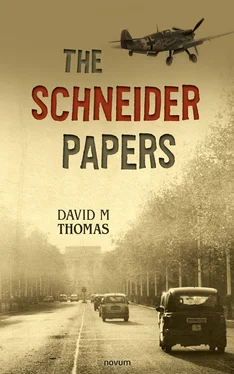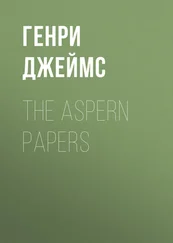‘Sir,’ said Mason, now, more comfortable in the company of the intruder, ‘why me?, if I am to meet with Group Captain Lefoy, and be briefed by him, why doesn’t he do all this himself?
‘Well for one, he is my Germany country manager, and I want to keep him there, and in pristine condition. You will go and come back, it’s an in and out job, and you have all the attributes;’ and he ticked off the points, with the fingers on his right hand, ‘you have pilot instructor qualifications, to intelligently quiz and understand, and ask for the relevant information from the RLM technical chap; you have a degree in chemistry, ideal for a discussion on synthetic fuel; and lastly, and equally important, you speak German like a native – ha! – all thanks to your history. Our people in the Embassy and consulates in Germany are obviously known to the security services, and are followed – they say periodically, but let us assume often.’
The word ‘expendable’ came to mind, confirmed by, ‘We cannot afford to be compromised. The Government is highly sensitive to anything or anyone who might upset Herr Hitler. That’s the way it is.
‘Now I want to talk about you.’ Cartwright settled himself back in the armchair and crossed his hands together over his stomach. ‘You were born in Dresden, and moved to London in 1913 when your father took up a position in the Chemistry Department of University College, London. Your parents and of course yourself obtained British citizenship in 1919. You were educated at University College London and graduated with a First Class degree in Chemistry in 1923. Therefollowed a period in the Royal Air Force where you attained the rank of Squadron Leader.’ This was said in a definitive oration of indisputable facts.
Mason nodded, having no idea where all this was going.
‘Last year, October 1935, and as a serving officer in the Royal Air Force, you were sent on a mission on behalf of the War Office to confirm or contradict the fact that the Italians were using chemical weapons in Abyssinia. By that I mean chlorine and or mustard gas. The objective was the civil-military Berca aerodrome at Benghazi where, information would have it, there was a chemical bomb dump. A transit place before transportation to Eritrea. You were to fake an engine problem and land, whilst in the air you were to take reconnaissance pictures, and whilst on the ground snoop around a bit. Crazy idea, I grant you, Mason. Nothing to do with me, I assure you!
‘It was ascertained at the court of inquiry that because you could not confirm a chemical weapon dump at Benzhazi, you decided to do your own investigation. To wit, break into a hanger at Berca aerodrome, badly injure an Italian officer, then fly over and take aerial pictures of the Italian airbases at Massawa and Asmera in Eritrea, a detour from your authorised route down the Red Sea to Berbera in British Somaliland. Unfortunately, your aircraft really did experience engine failure and you came down in the Donakil Depression on your way towards French Djibouti. The hottest place on earth Mason. Good judgement!’
‘I had no choice,’ spat out Mason indignantly, ‘the engine was dead, and the terrain was all sharp volcanic rocks and boulders. We’ve been through all this in that damned inquiry.’
‘Your navigator cum cameraman was unfortunately killed in the crash. It took you a month to reach safety, with half the Italian army out looking for you. A journey by camel and on foot. Also the unanswered question of two missing Italian soldiers. You were helped by various Tigray and Afari tribesmen who have no love for the Italians, and you finally got to French Djibouti.
‘I think that is a fair summary, don’t you?’
Mason didn’t reply. He just stared blankly at his uninvited guest.
Cartwright continued, ‘You were censured by the inevitable Court of Inquiry; you had disobeyed orders, lost an aircraft, been indirectly involved in the death of a fellow officer, and to cap it all off, the Italians turned the whole episode into a public relations exercise, much to the embarrassment of our government, which was prepared to turn a blind eye to Mussolini’s invasion of a neutral country.’
‘Your escapade turned the spotlight on Abyssinia, and our government’s appeasement attitude. Due to the ensuing public outcry, and fanned by your escapade, the Secretary of State for Foreign Affairs, Sir Samuel Hoare, had to resign. And now we have one of our own, Anthony Eden, as Foreign Secretary. So, to quote the bard: all’s well that ends well. That is why you’re off to Berlin in the morning.’
‘I don’t understand.’
‘Oh, you don’t?
‘You did the right thing. You acted on your own initiative. The fact that you were a serving officer and answerable to your Service and it to the War Office, and it in turn to politicians, is a millstone around your neck Mason. I have removed it. You run better without it.
‘Recall the contract of service business Air Commadore Woodbridge got you to sign? The Active Service clause? What that means is whilst on the Auxiliary Reserve list you are paid by the Royal Air Force, but when you’re on Active Service, I pay you. You now move between the Royal Air Force and my world.
‘Now you see me, now you don’t!’ Cartwright moved his upper body from side to side, theatrically, imitating a boxer, and smiled.
‘When you are on active service, you answer to no one except me. It carries responsibilities. You will have the power to act as you see fit within the confines of your remit, and call on other government agencies for assistance, if and when appropriate.’ His voice hardened, ‘The only brake on your field operations is a constant reminder of what I would say, or do, to you,’ Cartwright raised his eyebrows in emphasis, ‘in response to your action or actions.’ Terms of engagement clarified. Rules defined.
‘That was the point of my monologue. I want to bring you up a level. To think strategically. The big picture, as someone once said simplisticly.’
‘When you said, ‘you will,’ you imply in the future, and not now.’
‘Yes, correct. This is your first mission under my jurisdiction, let’s see how you go. You answer to Lefoy in Berlin. No solo flying. Let me repeat that, no solo flying, Mason.
‘Right-o!, I think that’s it,’ said Cartwright, using both arms to lever himself up from the armchair, ‘I shall leave you now, lots to think about I’m sure. You fly out tomorrow?’ As if he didn’t know.
‘Yes, Deutsche Lufthansa, Croydon, via Amsterdam,’ answered Mason, also raising himself from his sofa.
‘See how the ’52 flies. Bon idee! Matthews goes independently, you may or may not met him in Germany. Keep things flexible,’ said Cartwright as he struggled into his overcoat.
‘See you soon, and God speed.’
Mason followed him to the front door, closed and double locked it. He stood there, staring at the handle on the Yale lock-piece, his mind recalling Cartwright’s voice and reliving some things said. He had been told a lot of secrets.
He slowly turned and went back into the sitting room, went over to the window, leant over the sidetable and the lamp, and with a few jerks pulled the curtains together.
Chapter 8: Tuesday, September 22nd 1936
He got to Croydon aerodrome in good time for the 10.30am Deutsche Lufthansa (DLH) flight to Templehof aerodrome Berlin with a stop at Schiphol Amsterdam. The morning was dull and overcast, with low featureless clouds covering the whole south of England like a grey blanket. From the passenger hall he recognised the three engine airliner waiting on the grass apron, engines not yet started, and with a crew of ground mechanics in their brown coveralls busily finishing pre-flight inspection of the ailerons and undercarriage. To the left, about 400 yards away, was a sleeping and physically impressive four-engine Imperial Airways Handley Page HP-42 airliner. That would be for the Bulawayo and Cape Town run, he reckoned.
Читать дальше












